Nobody wants their Christmas shrouded in a pall of sadness…or their birthdays…or any other special day. Expectations about Christmas have been marketed, hyped, idealized, and Hallmark movie-ized. We even do it to ourselves—we remember the child-like wonder of Christmases past or are determined to create it if we did not experience it ourselves. But in real life, in the calendar-is-not-in-charge-of-life life, special days are just like any other—people die, get sick, get hurt, get mad, and feel sad. There were a number of years when the kids were small that I was always sick on Chris’ after-the-holidays birthday. My body just sort of crashed after the flurry; I feel that this year, too.
The loss of a loved one inhabits our bodies—beyond the broken hearts we can most readily acknowledge. We are intricately and mysteriously tied to those we love, in heart, mind, and soul, but also in body. It does us good to remember that and to honor ourselves and our aching bodies in the grieving process.
Grief also does another thing—it clears our calendars for us. Well, if not clear them, it writes its name at the top of every page, of every day. It steers the agenda whether we are aware of it…or not. So all our time we had in Kansas City and in Austin over the holidays, no matter what was on the agenda, Grief was by our side. At our ‘busy’ times, it trailed along behind us, only poking us with an occasional memory. But during quieter times, open times, the loss of Jon (along with many other significant losses that Grief lassos to the present one) took center stage.
Our drive to Texas took us through Kansas and the Flint Hills Prairie. On the Kansas Turnpike there’s not much to look at besides the beautiful blue sky and the beautiful prairie grasses on the rolling hills. Beautiful even in Winter. In that emptiness, I am soothed, and it allows an array of feelings to be laid out like a crazy quilt and examined and felt. Without distractions, our hearts and minds and bodies can do the work of grief more easily, though ‘easy’ is hardly the word to use for the process.
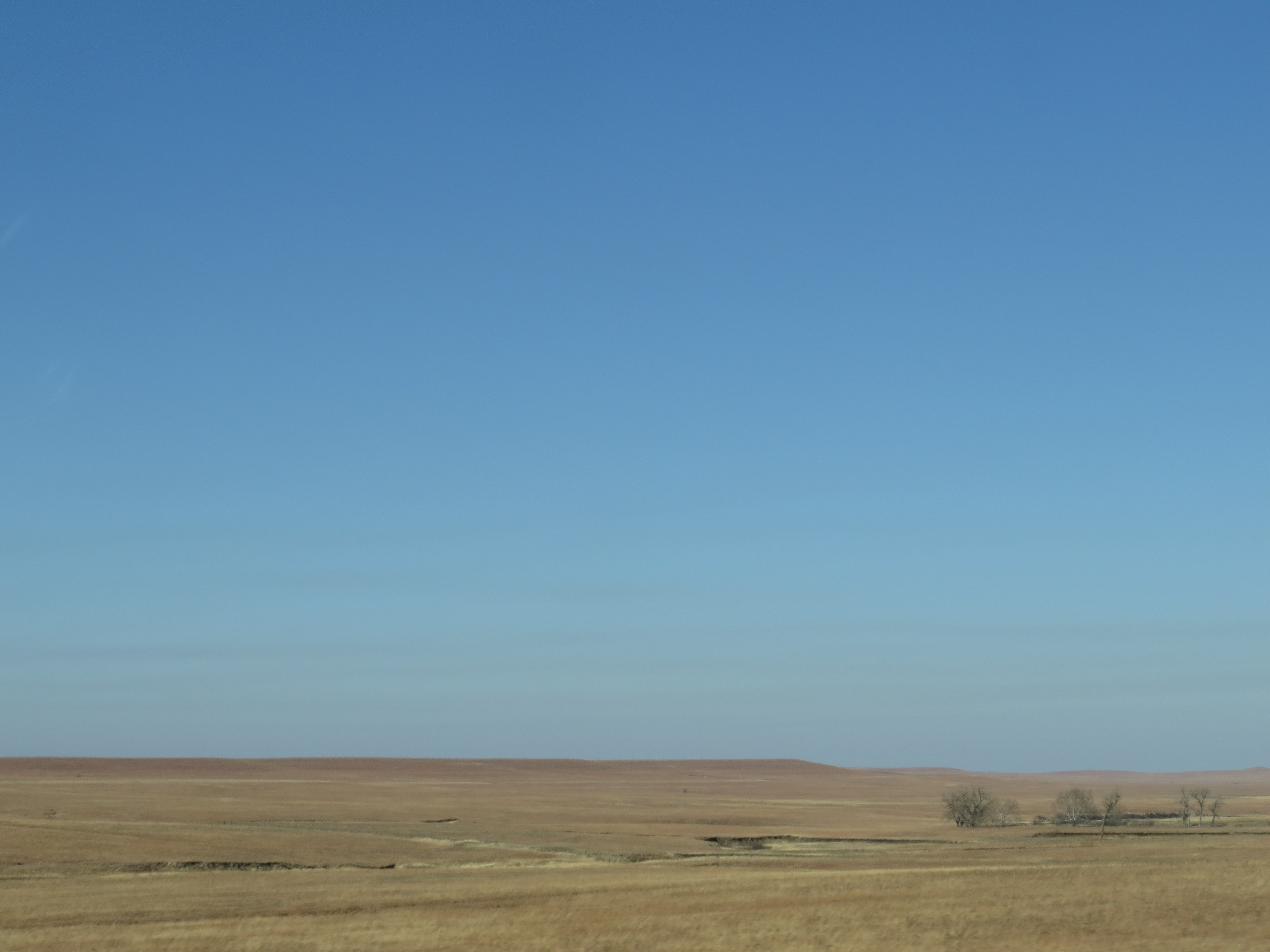
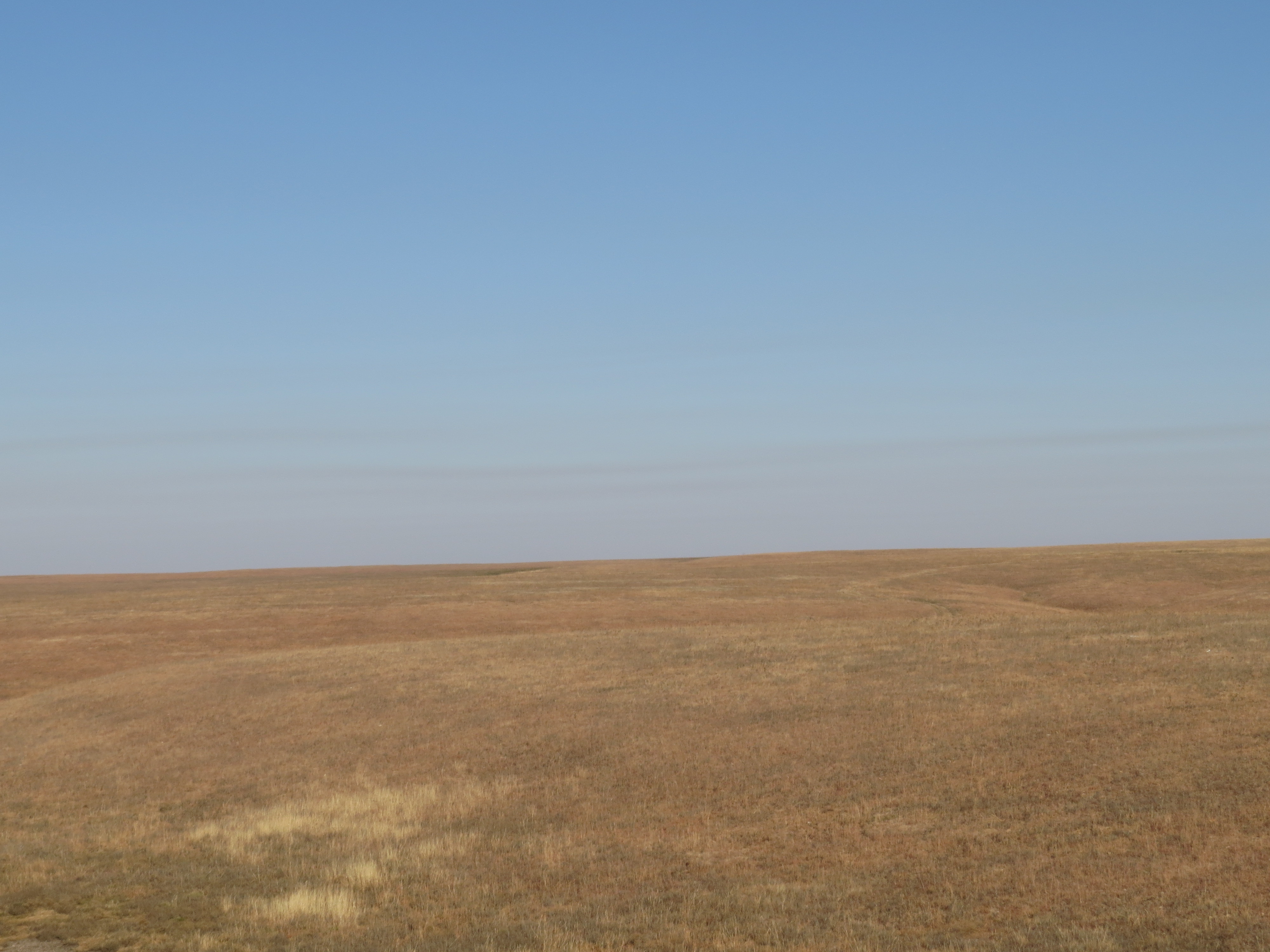
A sign alerted us to a scenic pullover to take in the splendor of the largest remaining intact tallgrass prairie in the world and to see the Bazaar Cattle Pens. We stepped out of the car into a very strong, chilly wind. We saw the herd hunkered down out of the gale—but it wasn’t a cattle herd—it was a Pronghorn Antelope herd!
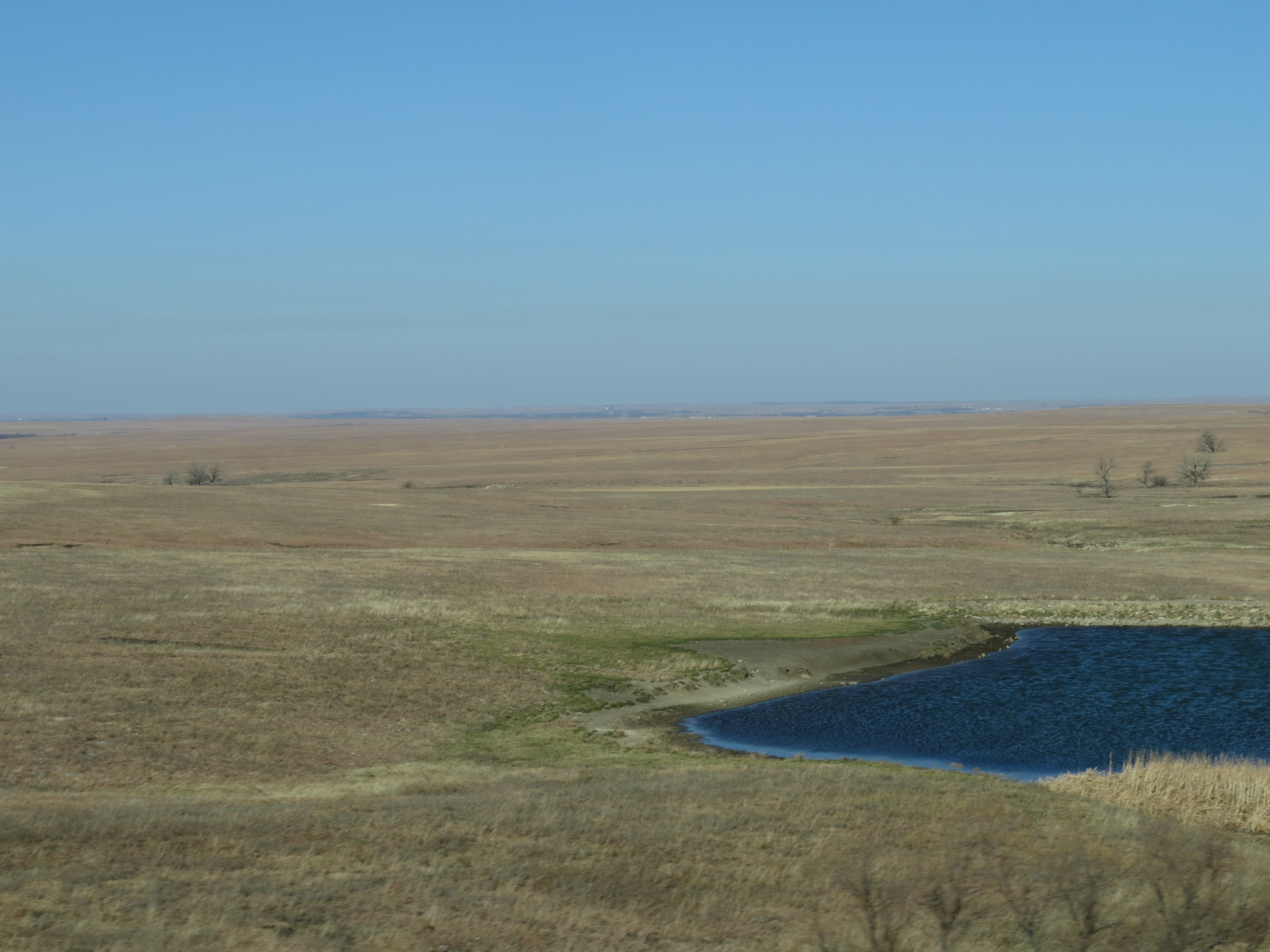
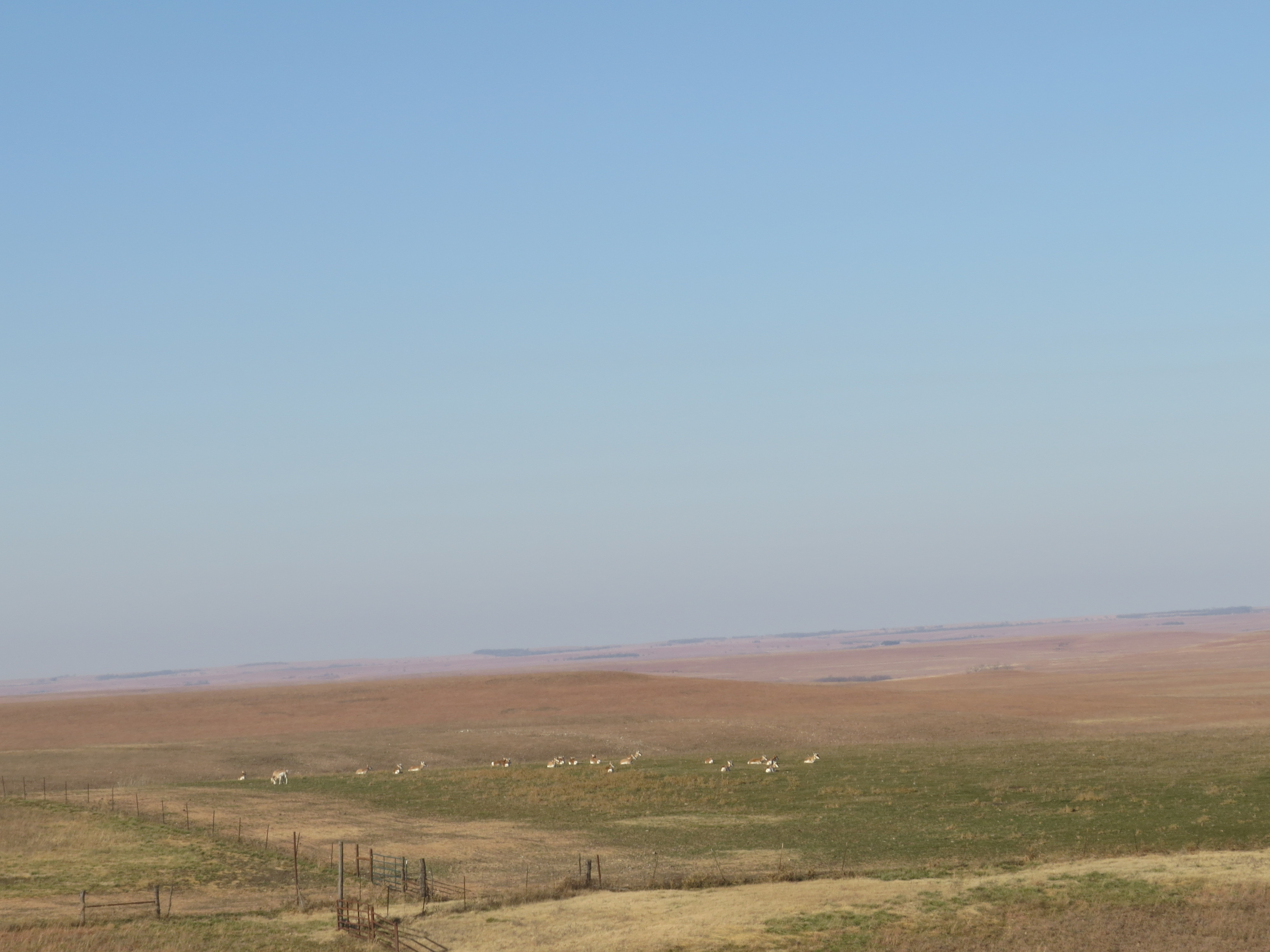
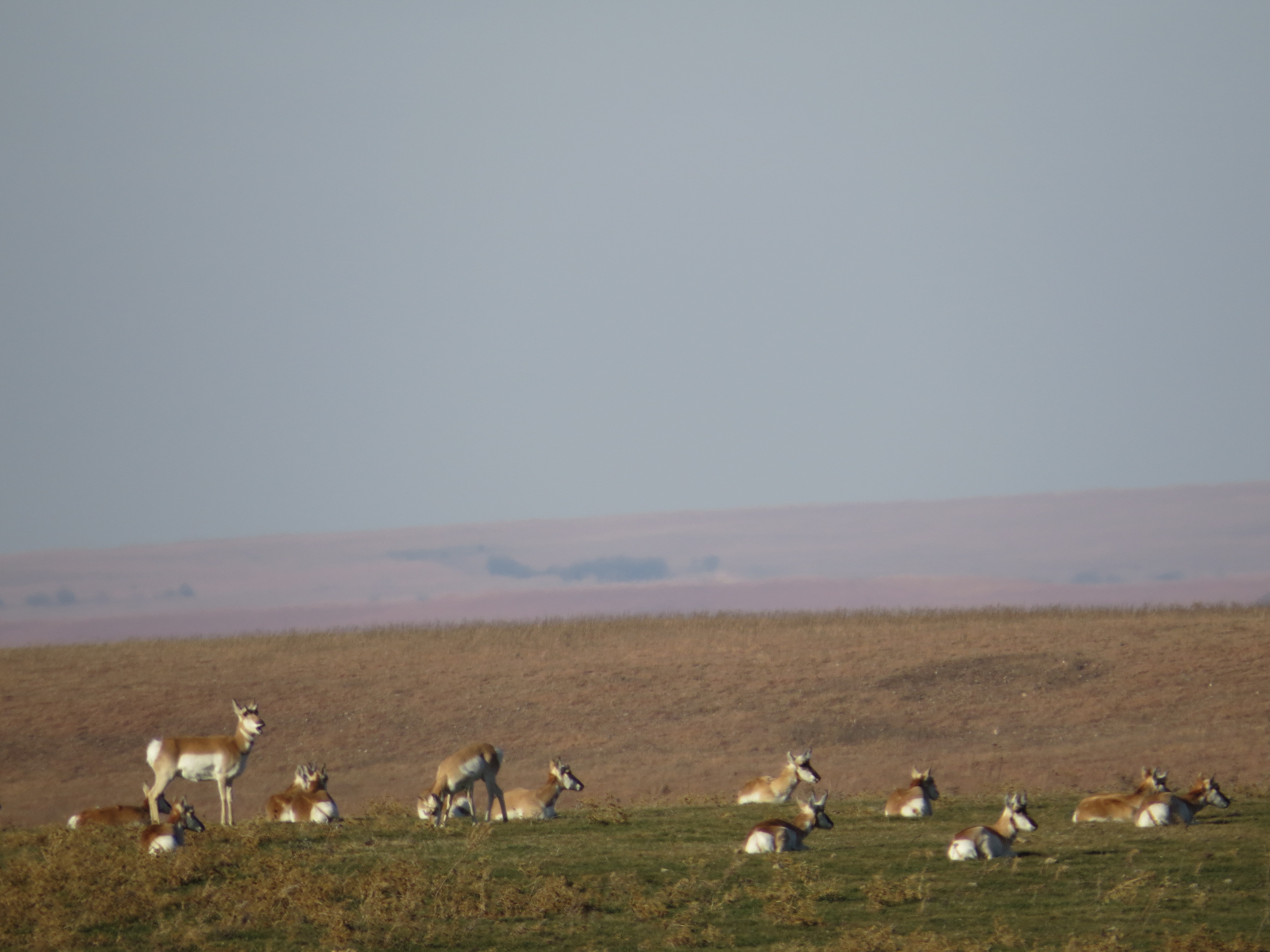
Pronghorns are the fastest land mammal in North America—living on the open prairie requires running rather than hiding in order to get away from predators. Their excellent eyesight allows them to see things up to four miles away. They are definitely home on this range.
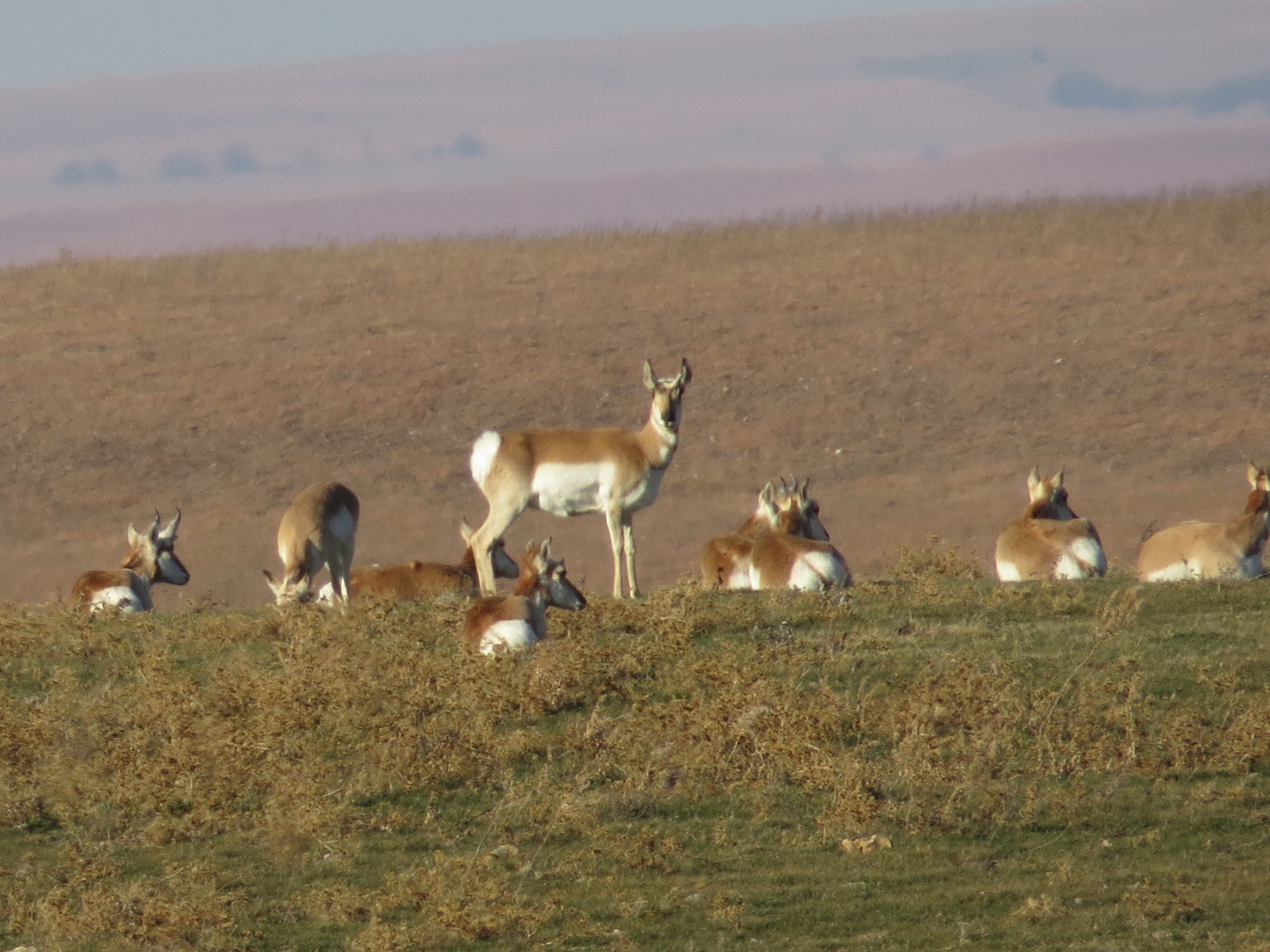
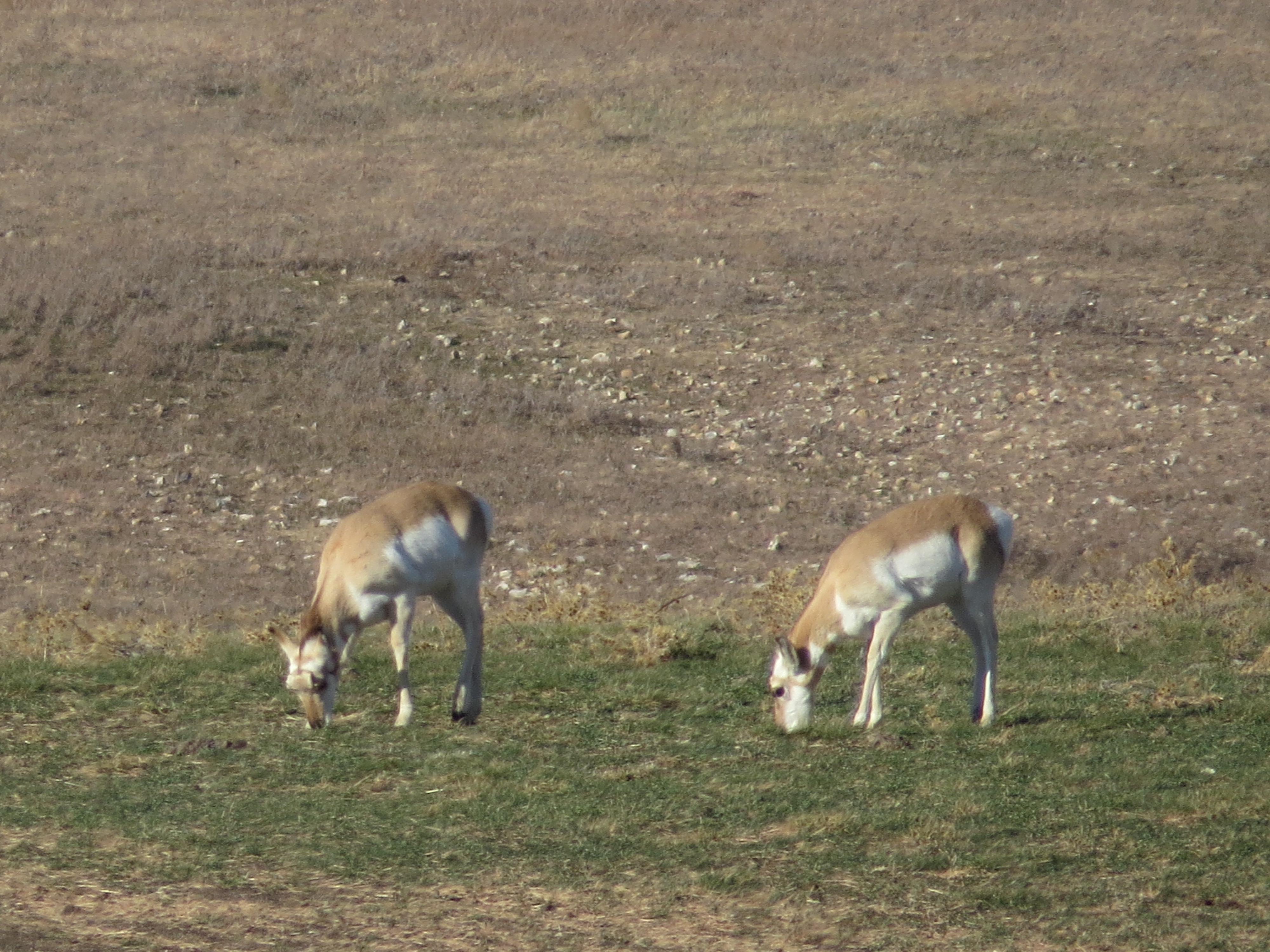
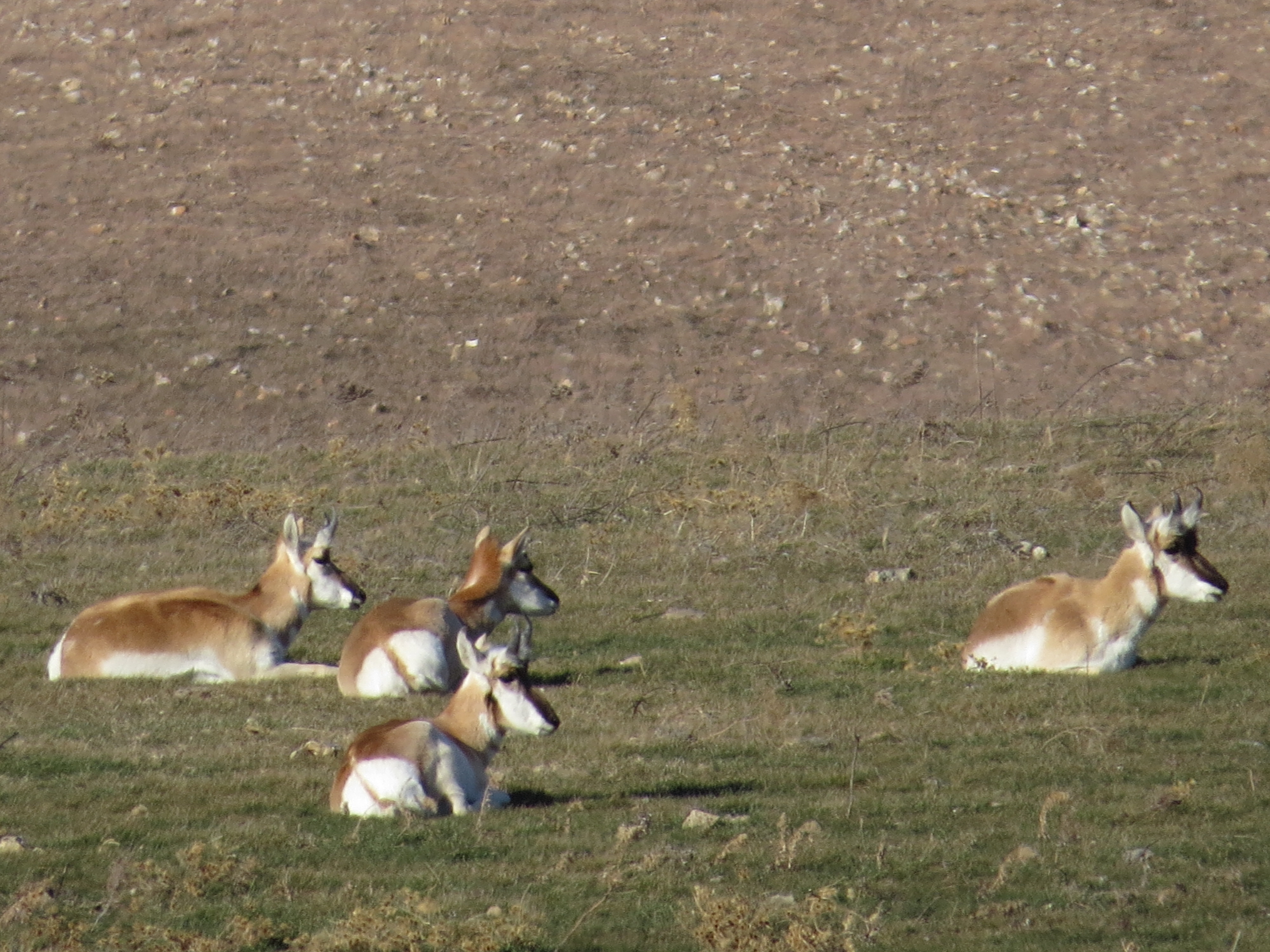
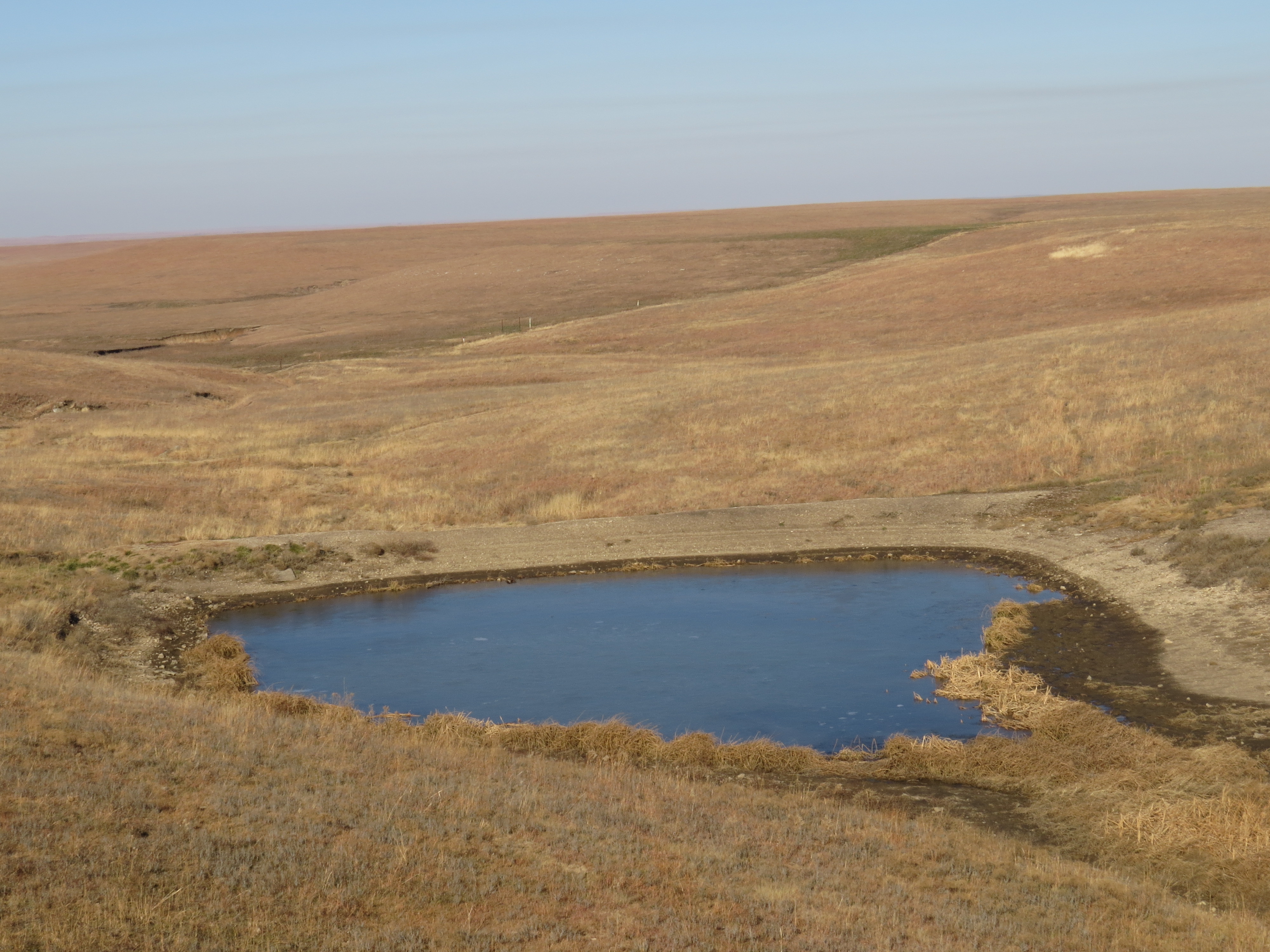
A bridge—the Bazaar Cattle crossing—allowed us to cross the interstate to go right up to the cattle pens used to sort, work, and transport cattle from the ranches.
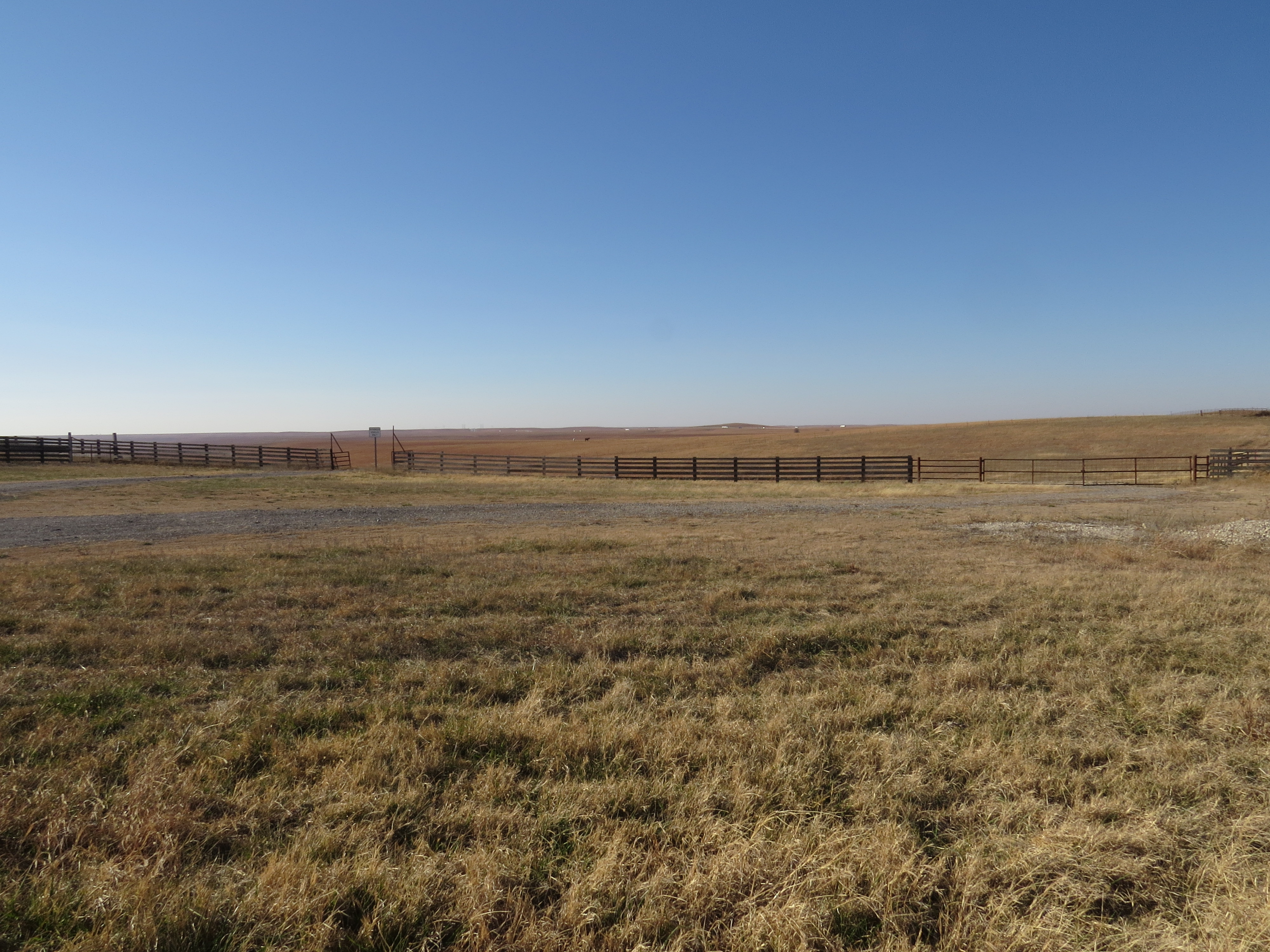
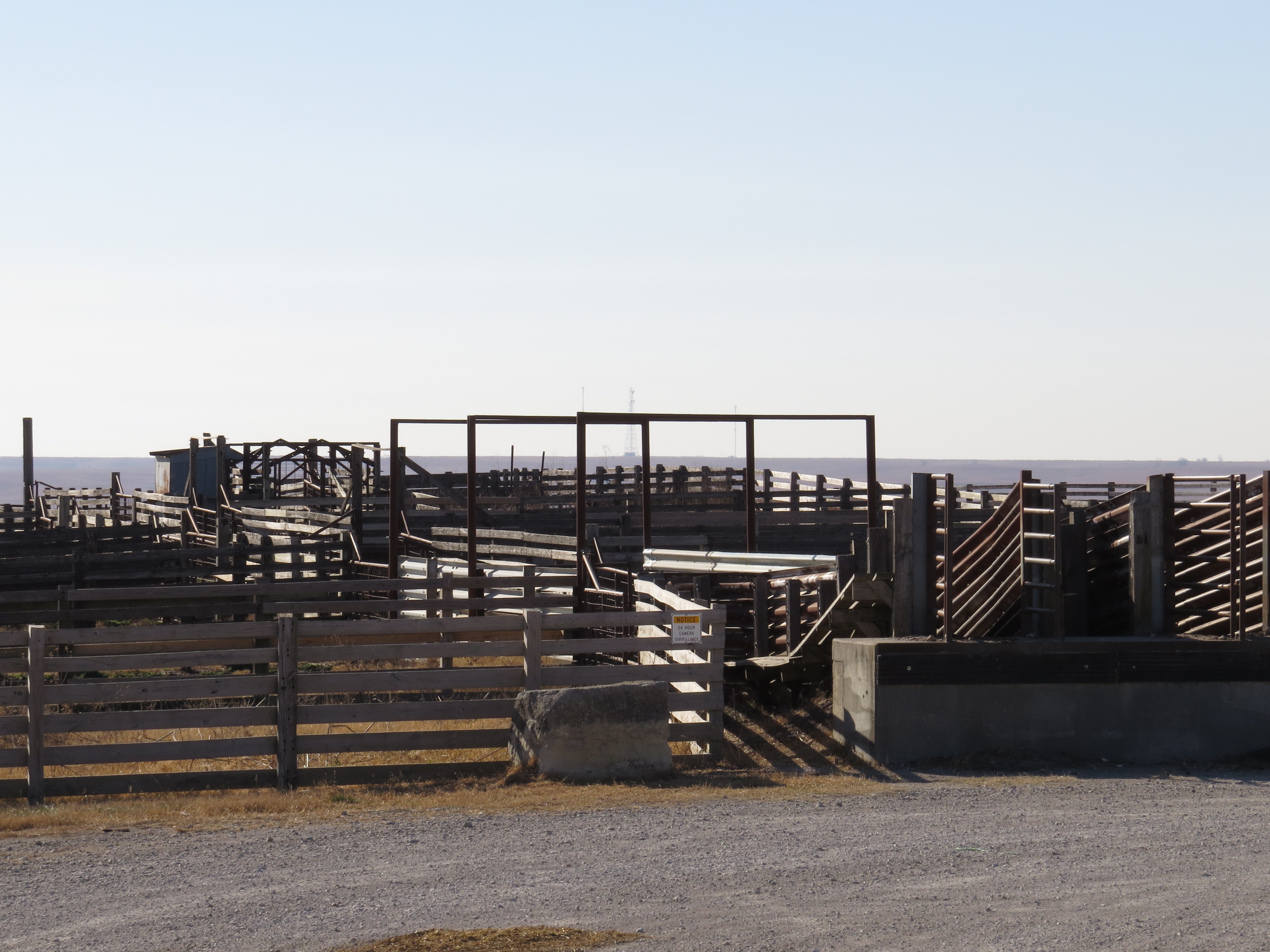
I loved this old hook latch on the outside of the pen’s weathered board. It didn’t look like it was for anything, but at one time, it held a gate open or shut, or held an integral piece of equipment for the cattle working process. I wonder how old it is…
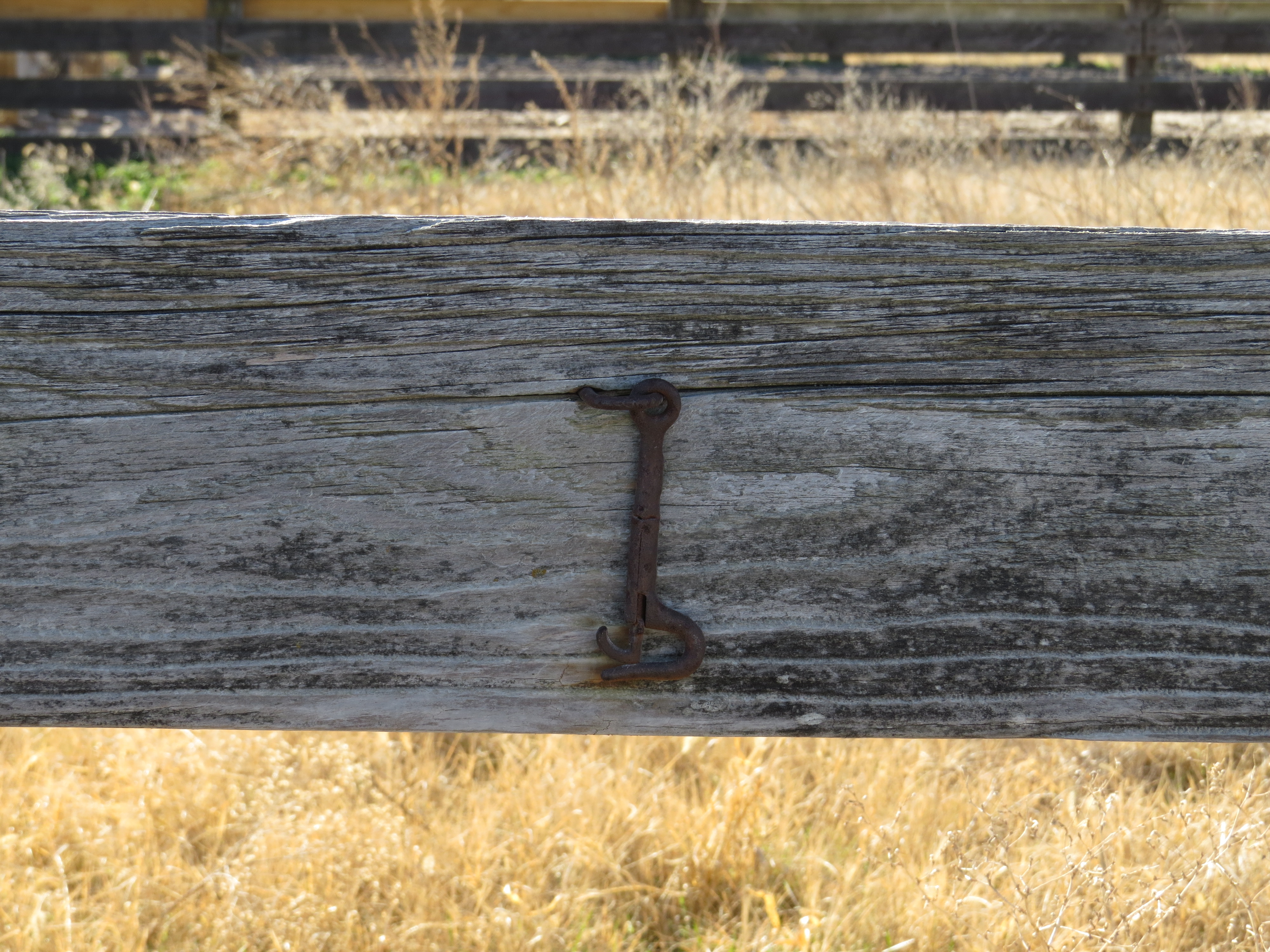
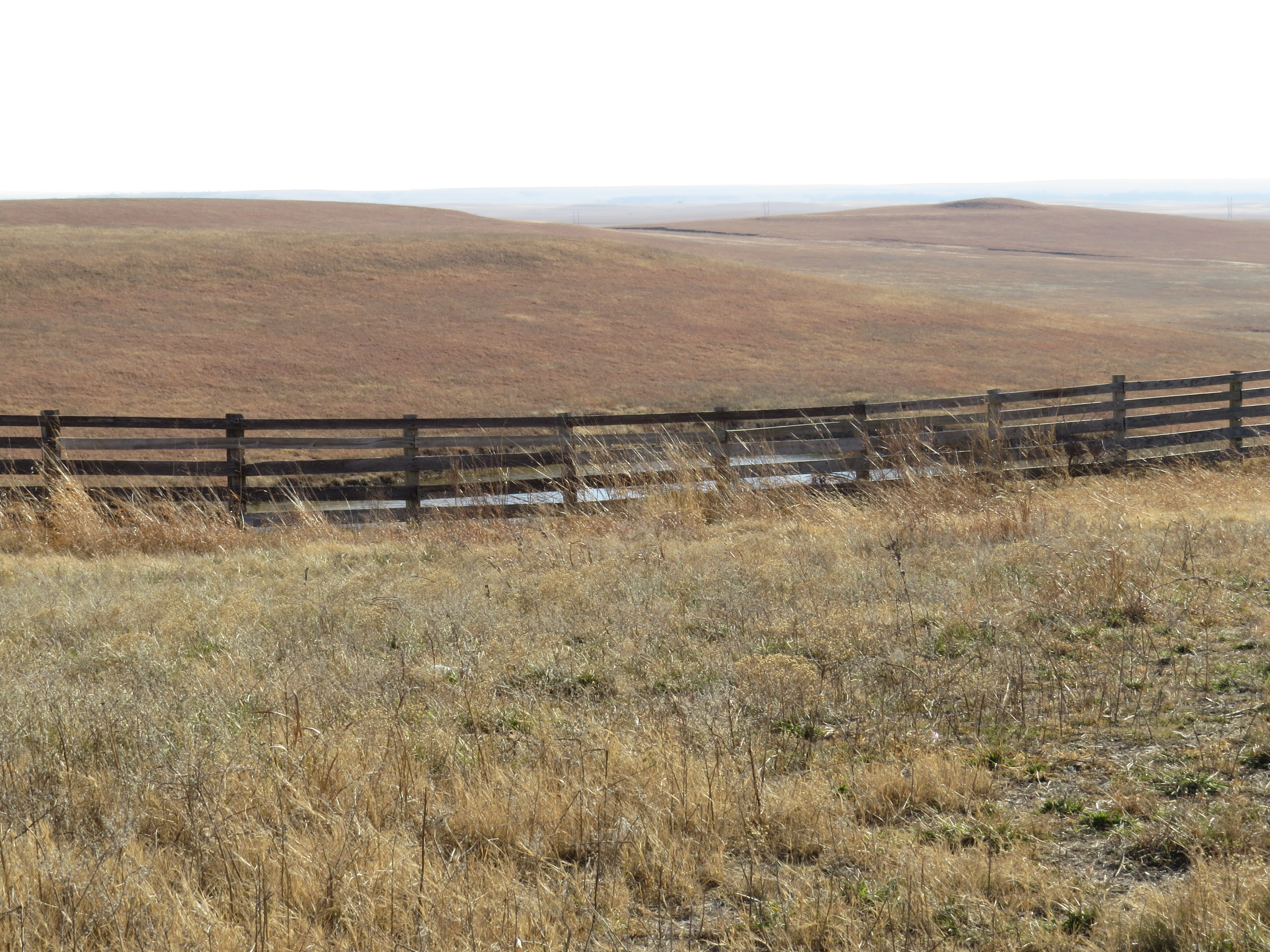
We did see two inhabitants who were ‘off work’ at the time. They and the Pronghorns have an amazing place to live!
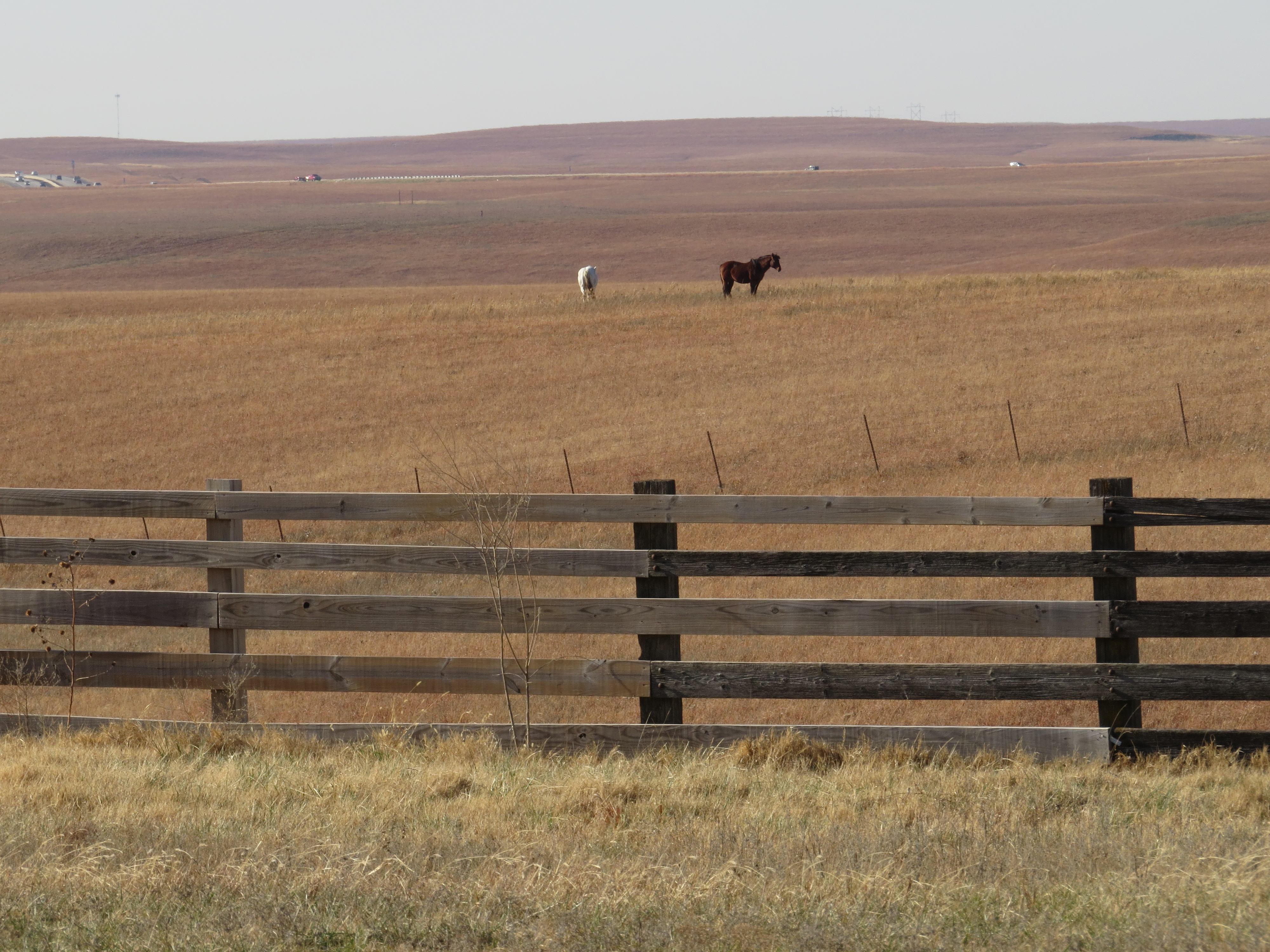
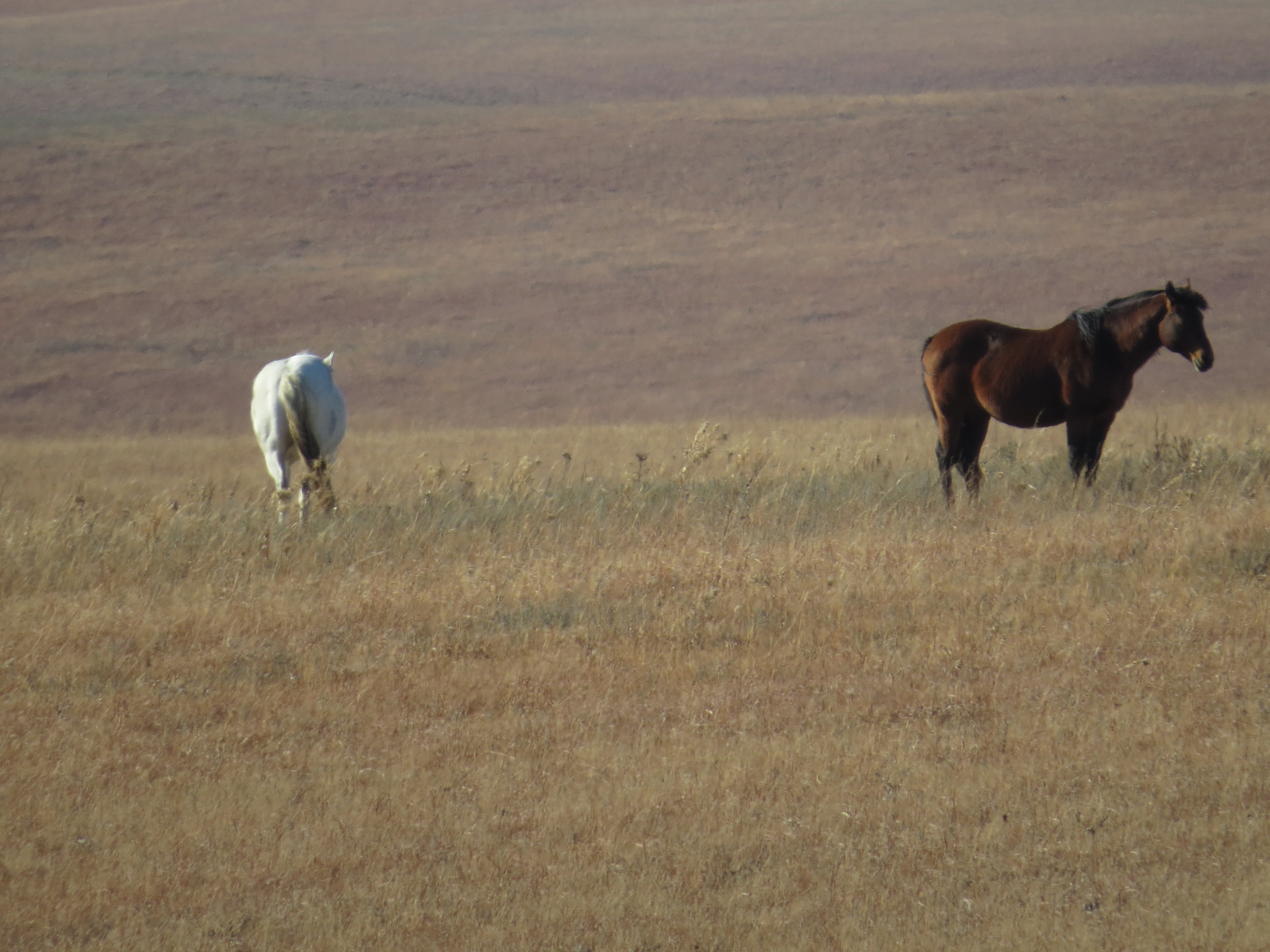
We left Bazaar, left Kansas, drove through Oklahoma into Texas for a night’s rest before our final leg to Austin.
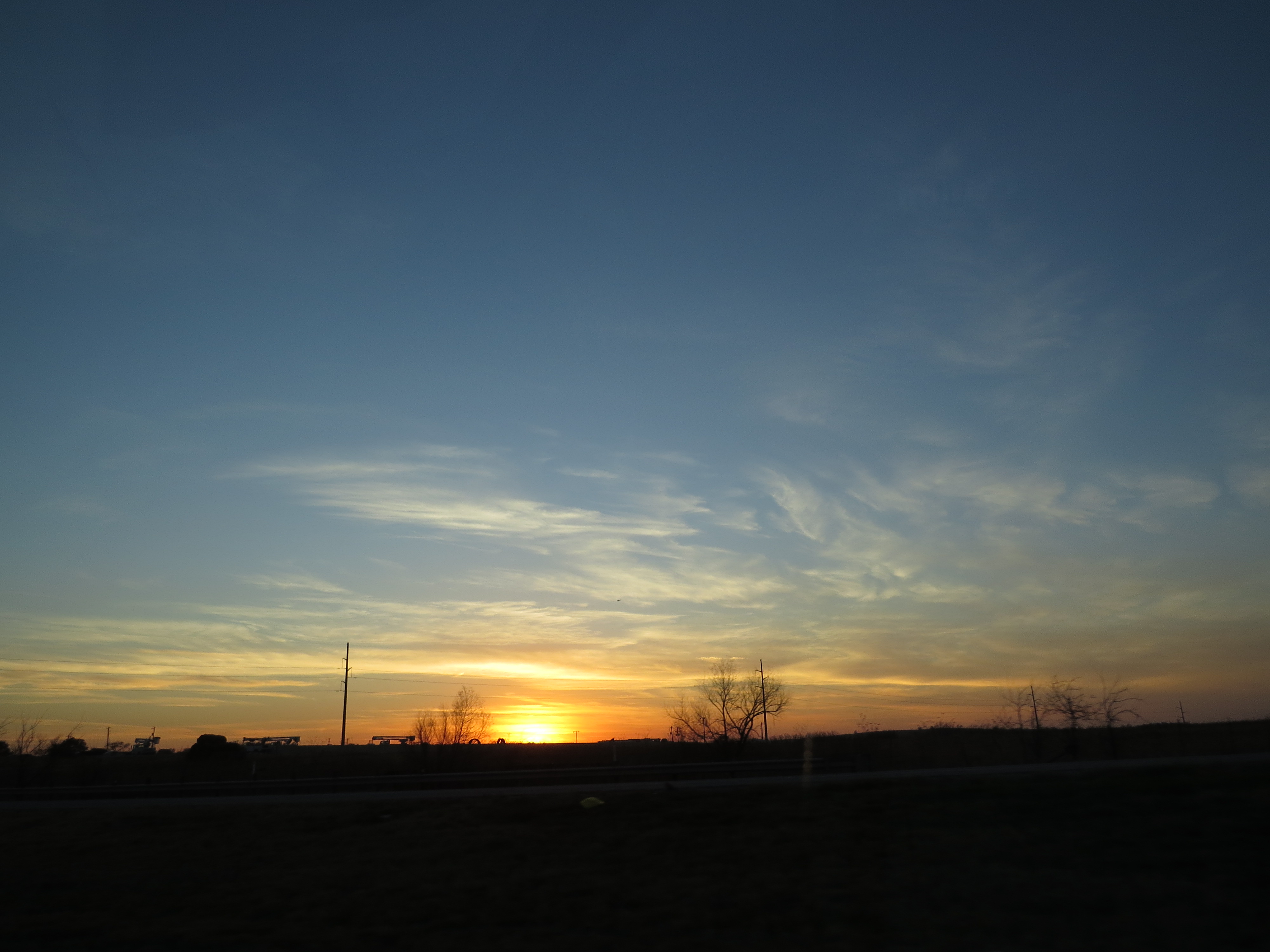
Up to a certain point in my life, grief was dealing with the loss of someone old through death, and as a young person, that was enough. I didn’t really know grief and understand it like I do now until the years prior to my mid-century mark. And then, it knocked me off my horse, crushing the air and energy out of me. Grief also encompasses the death of long-held beliefs and losses of living people and places that were deeply loved, cared for, and cherished. Heart-breaking. Mind-numbing. Soul-crushing. Body-aching. The open prairie, an enormous Cottonwood tree, and a wise woman elder were my canvas and guide on my grief journey. The prairie has few distractions, and you are left with yourself and your pain—just where we need to be. Grief and the pain that goes with it can pile up like tumbleweeds against a fence line and overwhelm us once again. But once a person rides through the prairie of pain, it is much easier to navigate the next death or the next loss with respect and honor. You stay in the saddle and ride on.
What or whom are you grieving, dear Denise?
Chris’ brother died right before Christmas, but my writing about grief includes many other griefs that I have navigated.
You know how to make great connections and give great food for thought. Thanks for sharing.
Thank you, Kay, my fellow prairie dweller.
Denise, you have expressed some of my feelings about the beauty of the open Kansas prairie. It’s hard to describe to people who have not experienced it, and not everyone who has experienced it appreciates the openness and silence.
So very true, Paula. I’m glad I could share that with you.
Denise, as always you are wise and deep, even when writing about and through your grief. I especially appreciate your observation about the ways in which grief inhabits our bodies. This piece, and the pictures, goes straight to my heart. Thanks, and blessings.
Thanks so much, Bob. I appreciate your blessings.